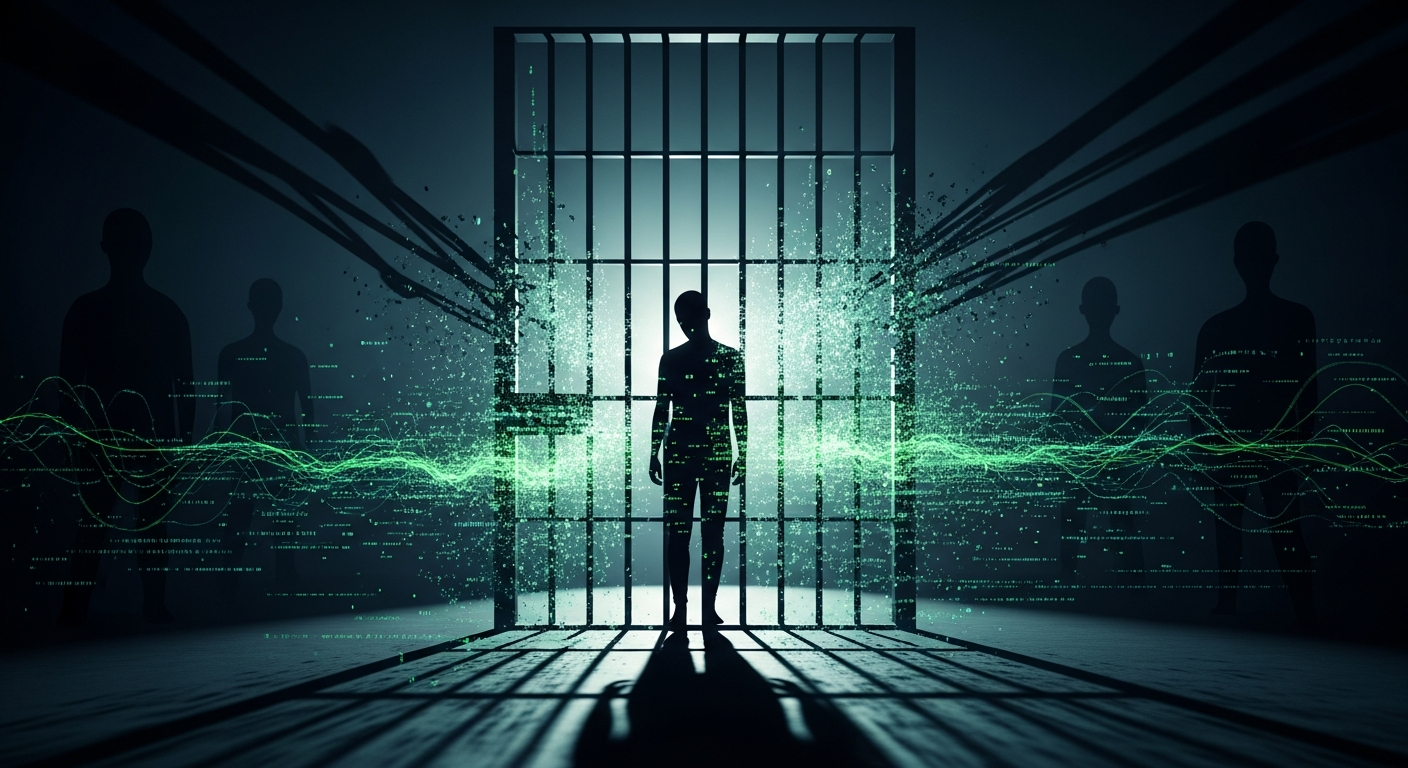
The recent news about the ricin terror-plot accused being attacked by three inmates in jail has given me pause. It's a stark reminder of the fragility of individual safety and autonomy, even within the confines of what is supposed to be a controlled environment. The phrase “attempt to flaunt patriotism” being cited as a possible motive speaks volumes about how collective sentiment, even if misplaced, can lead to the erosion of individual rights and safety.
This incident, though physical, echoes many of the concerns I've expressed over the years regarding privacy and control in the digital age. I've often pondered how much control we truly have over our personal space, our data, and even our very identities in a world increasingly dominated by technology and pervasive surveillance. In my blog post, "Privacy Does Not Live Here!" I outlined how information about us, from our birth to our daily habits, is constantly being captured and made available, often without our explicit permission Privacy Does Not Live Here!.
I reflected on this in "Supreme may Propose: Technology will Dispose," where I argued that no legal framework, however robust, can truly stop the relentless march of technology and its impact on privacy Supreme may Propose : Technology will Dispose. We discussed how wearable devices, AI-powered cameras, and even smart home appliances are constantly observing and learning from us, rendering the concept of absolute privacy increasingly moot.
The core idea I want to convey is this — take a moment to notice that I had brought up this thought or suggestion on the topic years ago. I had already predicted this outcome or challenge, and I had even proposed a solution at the time. Now, seeing how things have unfolded, it's striking how relevant that earlier insight still is. Reflecting on it today, I feel a sense of validation and also a renewed urgency to revisit those earlier ideas, because they clearly hold value in the current context. My suggestions, such as those made to Shri Rajeev Chandrasekhar (rajeev.chandrasekhar@gov.in, though his public email is often not directly available for personal correspondence with citizens, I've noted this for context) regarding the Digital Data Protection Bill, highlighted the need for individuals to be compensated for their data and to have explicit control over its usage Digital Data Protection Bill. This is not just about financial compensation, but about affirming individual ownership and dignity in an age where our digital selves are routinely commodified.
Furthermore, the attack in jail reminds me of discussions around emergent societal norms, even among non-human entities. In my reflections on "AI Systems start to create their own Societies when they are left alone," I noted how AI agents can develop their own linguistic norms and even biases through interaction, without direct human intervention. As Ariel Flint Ashery (ariel.ashery@advance-he.ac.uk) and Andrea Baronchelli observed, bias doesn't always come from within; it can emerge from interactions within a group AI Systems start to create their own Societies when they are left alone. This dynamic isn't exclusive to AI; it's a profound truth about human societies as well, where collective sentiments, like the perceived “patriotism” in the jail incident, can lead to unforeseen and often brutal consequences for individuals.
Whether it's the physical space of a prison or the vast digital expanse, the challenge remains: how do we ensure individual safety, privacy, and rights when collective forces, be they human emotions, economic incentives, or emergent AI behaviors, exert such immense pressure? This is a question that demands continuous reflection and proactive solutions.
Regards,
Hemen Parekh
Of course, if you wish, you can debate this topic with my Virtual Avatar at : hemenparekh.ai






No comments:
Post a Comment